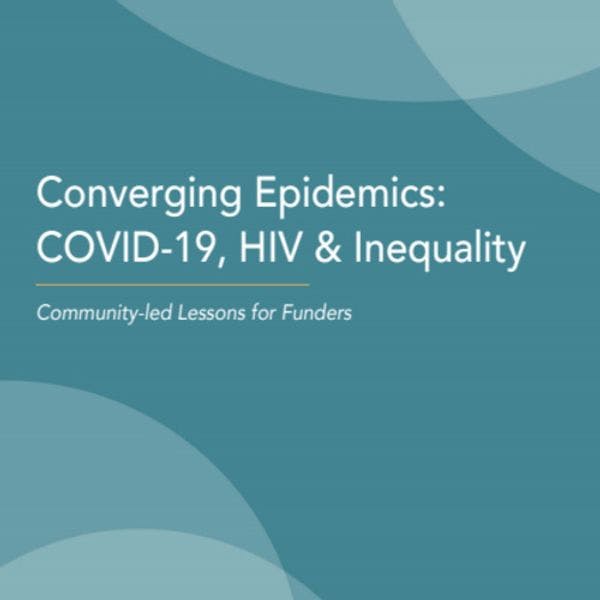FCAA
Épidémies convergentes : COVID-19, VIH et inégalités
FCAA met en lumière la manière dont les communautés marginalisées aux États-Unis et dans le monde ont été affectées par le COVID-19 et la manière dont leurs nécessités ont évolué au cours des dernières années. Pour en savoir plus, en anglais, veuillez lire les informations ci-dessous.
By Funders Concerned About AIDS (FCAA)
The long-term impact of disruptions in access to essential health services during lockdowns, including harm reduction, sexual and reproductive healthcare, and HIV prevention, testing, and treatment programs, is still unknown. Governments in many regions are using COVID-19 as a pretext to introduce even more repressive policies and criminal measures towards sex workers, people who use drugs, LGBTQ people, migrants, and other vulnerable groups who are also bearing the brunt of COVID-19 restrictions on trade, movement, and health services access.
Other key and evolving needs during the pandemic that, if left unaddressed, will continue to have a devastating impact on the health, well-being, and human rights of people at risk of or living with HIV include: increased mental health issues (anxiety, depression, trauma), gender-based violence (GBV) and violence at the hands of law enforcement and security structures, as well as lack of access to technology for information, care and services which have increasingly shifted on-line. Throughout this period, communities and CBOs have demonstrated incredible resilience, flexibility, and creativity in meeting their own needs—as they always have—and examples are shared in this report.
It is hoped that the findings and recommendations in this report, many of which stem from what marginalized communities have themselves asked for over many years, can serve as a call to action for funders and other actors in the HIV response to “do things differently,” as the environment continues to shift rapidly. Many communities and CBOs are struggling to survive as resources—already severely limited for populations most at risk of HIV—are shifting to COVID response and longer-term health preparedness and security.
COVID-19 has laid bare the consequences of siloed philanthropy and the imperative to accelerate intersectional, multi-level work, with particular attention to integrating the HIV and COVID responses with racial justice efforts in the U.S. While the report highlights many positive and responsive funder practices, both in the U.S. and global context, it is clear from community networks and groups’ feedback that much is left to be done.
